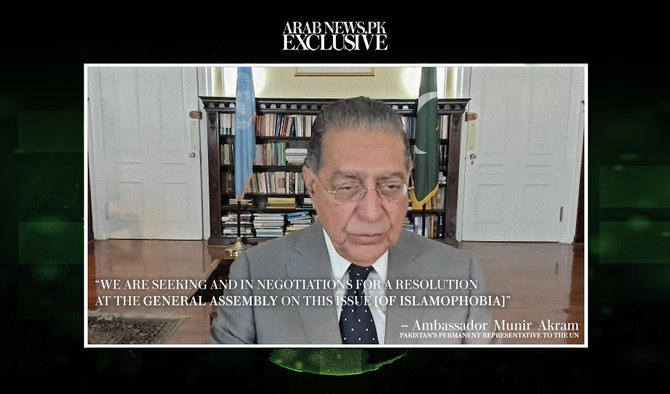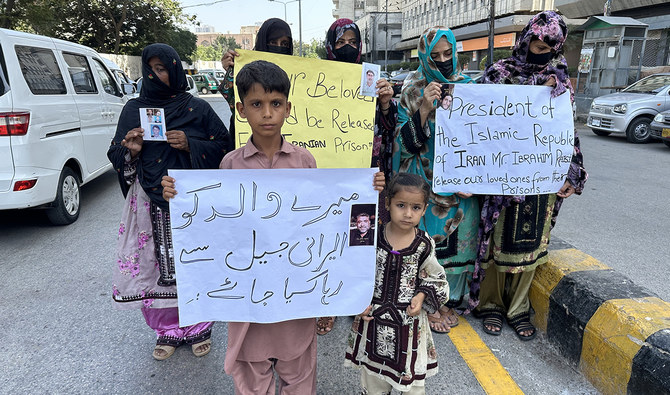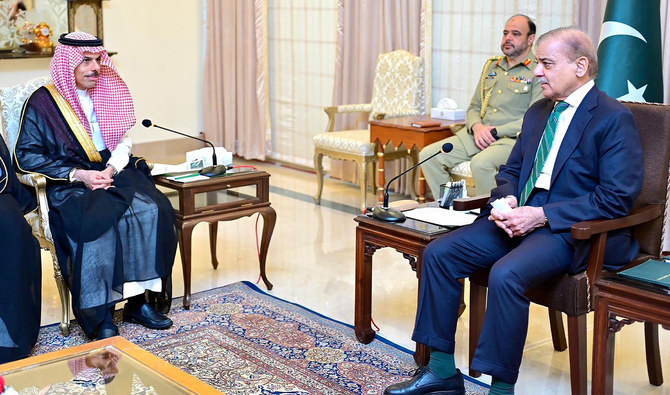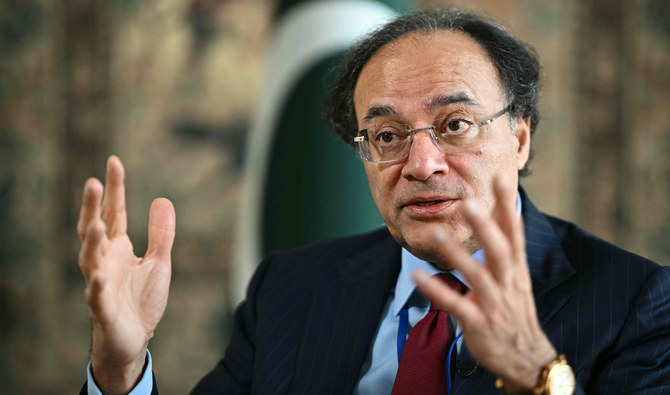ISLAMABAD: Pakistan plans to present a resolution against Islamophobia at the United Nations General Assembly, the country’s permanent representative to the UN, Ambassador Munir Akram, told Arab News on Thursday.
A renewed resolve to push for the resolution comes after the killings of a Pakistan-origin Muslim family in Canada earlier this week, which local police said was motivated by anti-Muslim hatred. Top Pakistani officials have condemned the killings as an “act of terrorism,” with the Pakistani prime minister saying it revealed growing Islamophobia in Western countries.
“We are seeking and in negotiations for a resolution at the general assembly on this issue [Islamophobia],” Akram said, without specifying when Pakistan would present the resolution. “This will take some time. We need to do a lot of convincing at the UN General Assembly with certain countries which are resisting it, including both some western countries and India but we are trying to secure it at the general assembly of UN.”
“Hopefully we will be able to build consensus,” he added. “I am very hopeful we will get it in there.”
Akram said while most people in the international community realized that Islamophobia was a reality, some nations were opposed to a resolution because it would oblige them to act on anti-Muslim hate crimes.
“There are governments which do not wish to allow the recognition of Islamophobia because it will create obligation for them to take action for the protection of Muslim minorities, communities and these are the governments which are resisting it,” Akram said.
Pakistan has been lobbying the cause on the international level, especially among Muslim countries, since the government of Prime Minister Imran Khan came to power in 2018.
Despite opposition from the European Union and other western nations and India, the UN General Assembly last December adopted a Pakistan and Philippines sponsored resolution on inter-religious dialogue that emphasized the need to respect “sacred religious symbols.”
Together with the Organization of Islamic Cooperation (OIC), Pakistan organized the International Day to Combat Islamophobia at the UNGA on March 16.
“OIC has done some very good things. They have recognized and propagated the recognition of Islamophobia,” Akram said. “Several resolutions at OIC Foreign Ministers summit level were adopted denouncing Islamophobic actions against Muslims.”
“Islamic commission on human rights has adopted several action oriented resolutions on this,” he said, listing OIC actions. “They have established in the OIC a registry of all actions against Muslims, which is put into a composite report every year.”
In April, PM Khan met Islamabad-based ambassadors of countries belonging to the OIC and briefed them about Pakistan’s efforts at the international level to create awareness against Islamophobia.
Last October, Khan also wrote a letter to leaders of Muslim countries calling for collective action.
“It’s a common cause and all Muslim countries have to do it together,” Akram said, adding that Pakistan was closely cooperating with Saudi Arabia and other Muslim-majority states on the issue.
Acts of discrimination against Muslims abroad often lead to popular reactions in Pakistan, including violent protests by the Tehreek-e-Labbaik Pakistan religious party in April to expel the French envoy to Islamabad over cartoons of the Prophet Muhammad (peace be upon him) published in France last year.
The Pakistan government did not succumb to pressure to expel the ambassador, which Akram said was the right decision.
“Confrontation will neither help the anti-Islamophobia movement nor help Muslims in France and the European Union,” he said. “We have to adopt the cooperative persuasive approach,” he added, saying the main task was to change mindsets.
“It’s in the hearts and minds of the people. We have to convert hearts and minds of the people who are anti-Muslim and Islamophobic,” he said. “This is a process, and this process can only be promoted when we serve our cause through values, tolerance, by the principles of harmony and cooperation, which are the principles of our religion.”
















